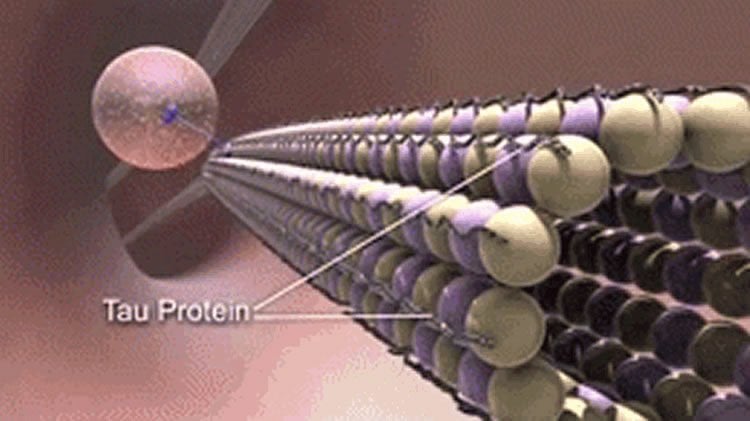Summary: A new study find increased levels of Alzheimer’s related Tau protein in children under the age of 18 who suffer early onset psychosis.
Source: IEPA.
New research presented at this year’s International Early Psychosis Association (IEPA) meeting in Milan, Italy (20-22 October) shows that levels of a certain type of the Alzheimer’s disease-related tau protein are higher in patients aged 18 years and under suffering early onset psychosis (EOP). The study is by Dr Mathias Lundberg and Dr Neil Cleland, Karolinska Institutet, Stockholm, Sweden and colleagues.
EOP, including early onset of schizophrenia (EOS) and affective non-schizophrenia psychotic disorders, are devastating mental disorders with an onset age before 18 years and an unknown cause. Previous studies have shown that when these conditions develop, the person affected suffers a severe loss of neurocognitive functions, such as attention, executive function, coordinating thoughts and working memory. Researchers have suggested this could indicate neurodegeneration.
In neurodegenerative disorders such as Alzheimer’s disease, the deterioration is associated with increased neurodegenerative biomarkers (such as tau protein) in blood and cerebrospinal fluids. In this study, the authors investigated the possibility of neurodegeneration in EOP by analysis blood plasma levels of tau protein (both total tau [t-tau] and capsase cleaved tau [c-tau]), markers previously associated with both Alzheimer’s disease and traumatic brain injury.

The plasma concentrations of t-tau and c-tau were measured in patients (n=20) versus controls (n=20). The researchers found that plasma levels of c-tau were higher, with mean values 2150 pg/ml in EOP patients versus 1100 pg/ml in controls. There were no significant differences in the levels of t-tau.
The authors conclude: “This finding suggests that tau protein metabolism may be altered in EOP. The results may have implications for the understanding of the pathophysiology of EOP and for new treatment strategies.”
Funding: The study was funded by the Craig H. Neilsen Foundation, Ray W. Poppleton Endowment, National Institutes of Health.
Source: Matthias Lundberg – IEPA
Image Source: NeuroscienceNews.com image is in the public domain.
Original Research: The study will be presented at the 10th International Conference on Early Intervention in Mental Health at Marriott Milan, Italy, October 19-22, 2016.
[cbtabs][cbtab title=”MLA”]IEPA “Higher Levels of Alzheimer’s Protein in Under 18’s With Early Onset Psychosis.” NeuroscienceNews. NeuroscienceNews, 23 October 2016.
<https://neurosciencenews.com/alzheimers-tau-psychosis-children-5331/>.[/cbtab][cbtab title=”APA”]IEPA (2016, October 23). Higher Levels of Alzheimer’s Protein in Under 18’s With Early Onset Psychosis. NeuroscienceNew. Retrieved October 23, 2016 from https://neurosciencenews.com/alzheimers-tau-psychosis-children-5331/[/cbtab][cbtab title=”Chicago”]IEPA “Higher Levels of Alzheimer’s Protein in Under 18’s With Early Onset Psychosis.” https://neurosciencenews.com/alzheimers-tau-psychosis-children-5331/ (accessed October 23, 2016).[/cbtab][/cbtabs]






